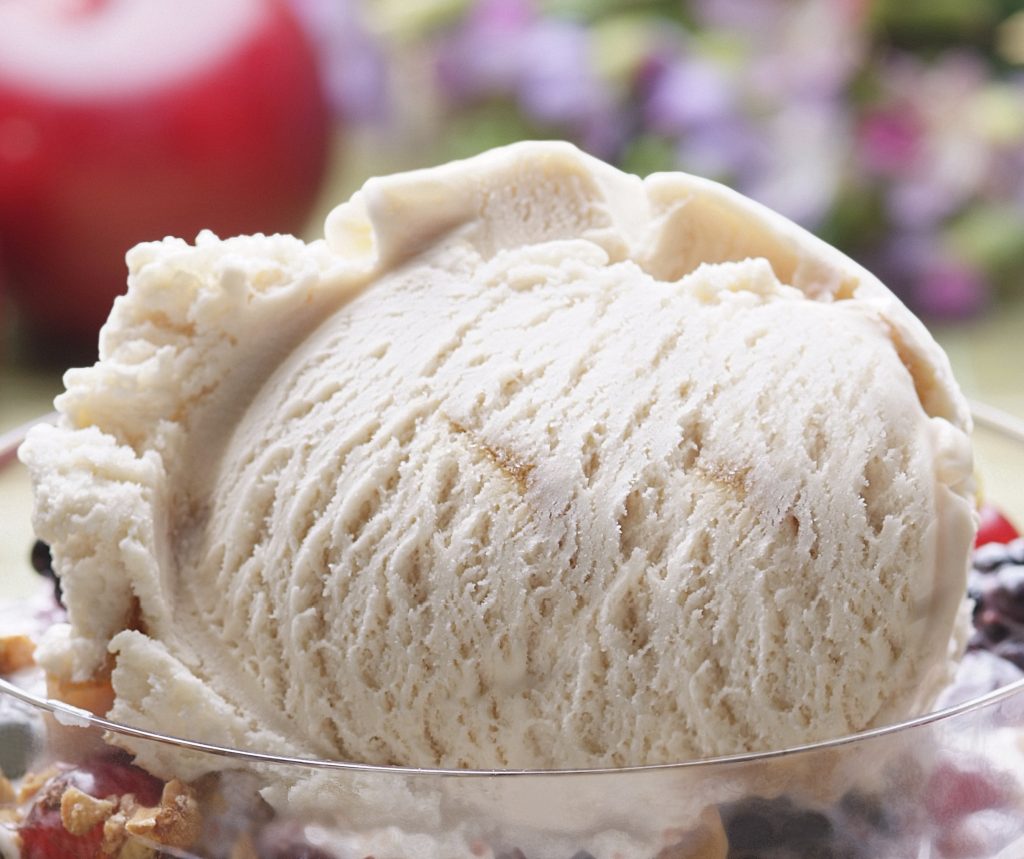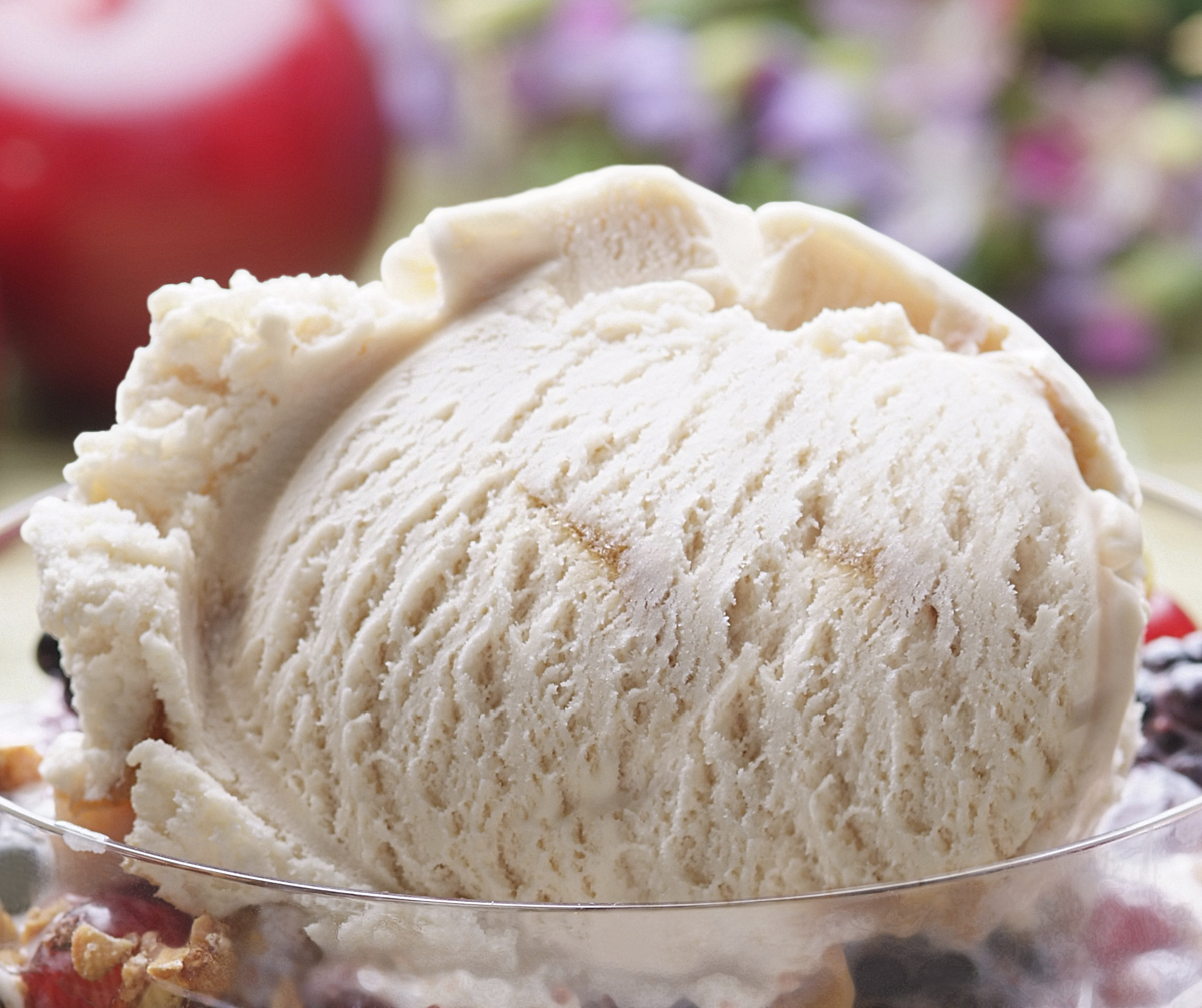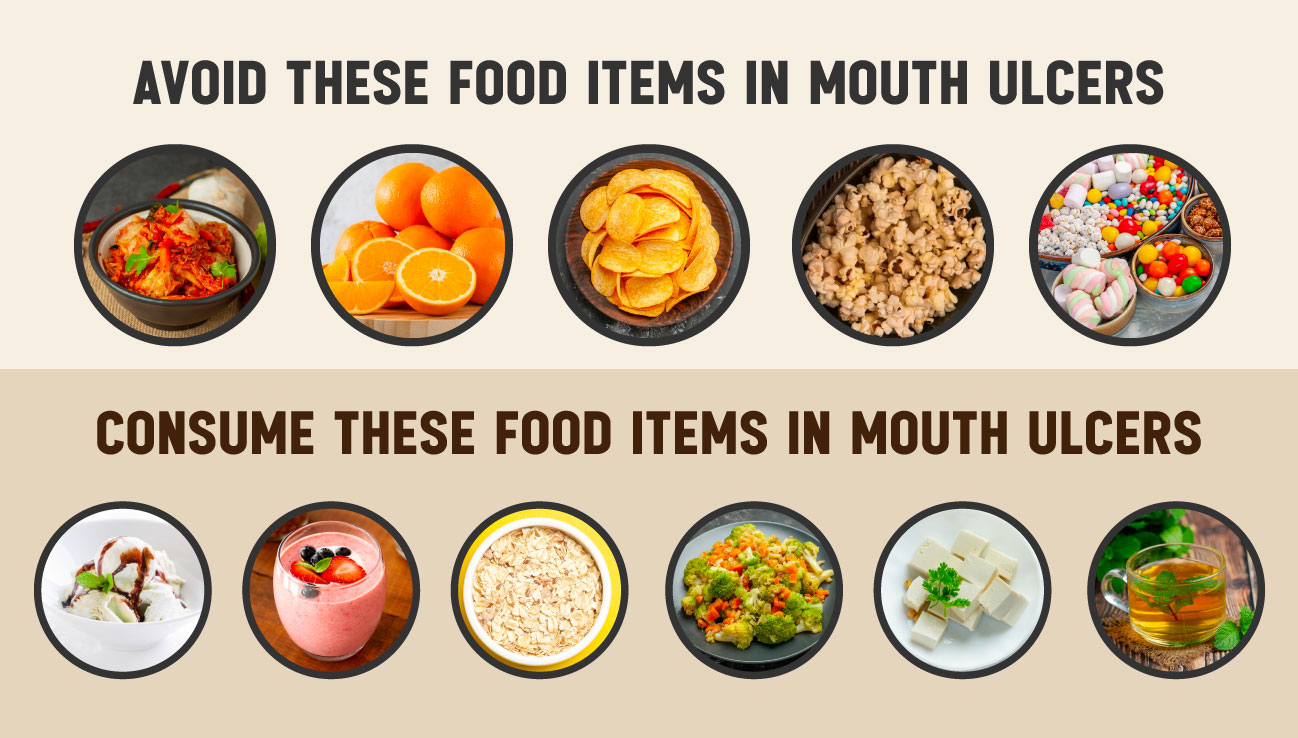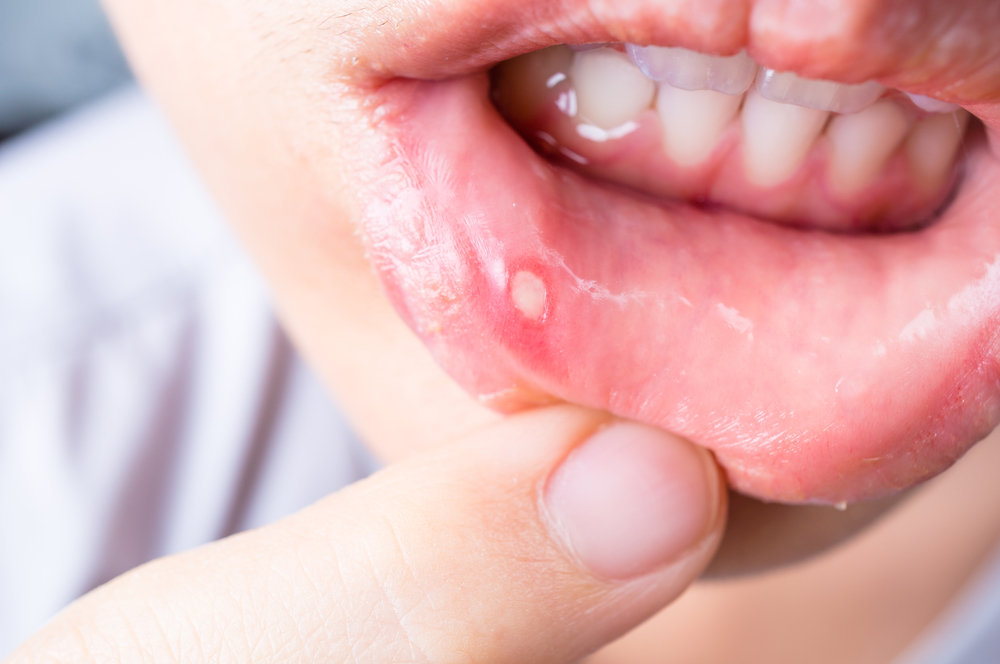Can we eat ice cream during mouth ulcers

Mouth ulcers, also known as canker sores, are painful lesions that can develop inside the mouth. They can be caused by a variety of factors, including stress, hormonal changes, certain foods, and vitamin deficiencies. While mouth ulcers are generally not serious, they can be very uncomfortable and make eating and drinking difficult.
One of the questions that people often have about mouth ulcers is whether or not they can eat ice cream. Ice cream is a cold, creamy treat that can be soothing to the mouth. However, it is important to be aware that some ingredients in ice cream can actually irritate mouth ulcers and make them worse.
Can Ice Cream Soothe or Worsen Mouth Ulcers?
Eating ice cream with mouth ulcers is a common question, and the answer isn't a simple yes or no. It depends on several factors, primarily the type of ice cream, the severity of the ulcer, and your individual sensitivity. While the cold temperature can provide temporary numbing relief, certain ingredients can irritate the sore, prolonging healing or causing further discomfort.
What are Mouth Ulcers?
Mouth ulcers, also known as aphthous ulcers or canker sores, are small, shallow lesions that develop on the soft tissues inside the mouth. They're characterized by a painful, whitish-yellow center surrounded by a red border. The cause isn't fully understood, but contributing factors include stress, hormonal changes, injury, and certain foods. Their severity varies; some are minor and heal within a week, while others can be larger, more painful, and take longer to heal.
Does Cold Numb the Pain?
The cold temperature of ice cream can temporarily numb the pain of a mouth ulcer. This provides short-term relief, but the effect is fleeting. Once the ice cream melts, the pain may return, and certain ingredients might exacerbate the irritation.
Which Ice Cream Ingredients to Avoid?
Certain ice cream ingredients can irritate mouth ulcers. Acidic flavors like lemon or lime, and those with high sugar content can worsen inflammation and increase pain. Artificial colors and flavors can also be irritating. Large chunks of nuts or chocolate might cause further injury to the already sensitive ulcer.
What Types of Ice Cream Might Be Tolerable?
If you decide to try ice cream, opt for plain, less acidic varieties, such as vanilla or plain yogurt-based ice cream. Ensure it's smooth and free of chunks that could scratch the ulcer. Consider allowing the ice cream to slightly soften before eating to minimize the potential for further irritation from its coldness.
Managing Mouth Ulcers: Beyond Ice Cream
While ice cream might offer temporary relief, effective mouth ulcer management involves a multifaceted approach. Rinsing with a warm saltwater solution can help promote healing and reduce inflammation. Over-the-counter pain relievers such as topical anesthetics or oral analgesics can manage pain. In case of persistent or severe ulcers, consulting a dentist or doctor is recommended.
| Ice Cream Ingredient | Effect on Mouth Ulcers |
|---|---|
| Plain Vanilla (low acidity) | May provide temporary numbing relief; generally less irritating. |
| Acidic Flavors (lemon, lime) | Likely to worsen inflammation and increase pain. |
| High Sugar Content | Can prolong healing and increase irritation. |
| Artificial Colors & Flavors | Potentially irritating to sensitive tissues. |
| Nuts & Chocolate Chunks | May cause further injury to the ulcer. |
Can Ice Cream Soothe or Worsen Mouth Ulcers?
Eating ice cream with mouth ulcers is a common question, and the answer isn't a simple yes or no. It depends on several factors, primarily the type of ice cream, the severity of the ulcer, and your individual sensitivity. While the cold temperature can provide temporary numbing relief, certain ingredients can irritate the sore, prolonging healing or causing further discomfort.
What are Mouth Ulcers?
Mouth ulcers, also known as aphthous ulcers or canker sores, are small, shallow lesions that develop on the soft tissues inside the mouth. They're characterized by a painful, whitish-yellow center surrounded by a red border. The cause isn't fully understood, but contributing factors include stress, hormonal changes, injury, and certain foods. Their severity varies; some are minor and heal within a week, while others can be larger, more painful, and take longer to heal.
Does Cold Numb the Pain?
The cold temperature of ice cream can temporarily numb the pain of a mouth ulcer. This provides short-term relief, but the effect is fleeting. Once the ice cream melts, the pain may return, and certain ingredients might exacerbate the irritation.
Which Ice Cream Ingredients to Avoid?
Certain ice cream ingredients can irritate mouth ulcers. Acidic flavors like lemon or lime, and those with high sugar content can worsen inflammation and increase pain. Artificial colors and flavors can also be irritating. Large chunks of nuts or chocolate might cause further injury to the already sensitive ulcer.
What Types of Ice Cream Might Be Tolerable?
If you decide to try ice cream, opt for plain, less acidic varieties, such as vanilla or plain yogurt-based ice cream. Ensure it's smooth and free of chunks that could scratch the ulcer. Consider allowing the ice cream to slightly soften before eating to minimize the potential for further irritation from its coldness.
Managing Mouth Ulcers: Beyond Ice Cream
While ice cream might offer temporary relief, effective mouth ulcer management involves a multifaceted approach. Rinsing with a warm saltwater solution can help promote healing and reduce inflammation. Over-the-counter pain relievers such as topical anesthetics or oral analgesics can manage pain. In case of persistent or severe ulcers, consulting a dentist or doctor is recommended.
| Ice Cream Ingredient | Effect on Mouth Ulcers |
|---|---|
| Plain Vanilla (low acidity) | May provide temporary numbing relief; generally less irritating. |
| Acidic Flavors (lemon, lime) | Likely to worsen inflammation and increase pain. |
| High Sugar Content | Can prolong healing and increase irritation. |
| Artificial Colors & Flavors | Potentially irritating to sensitive tissues. |
| Nuts & Chocolate Chunks | May cause further injury to the ulcer. |
Can a mouth ulcer eat ice cream?

Whether or not someone with a mouth ulcer can eat ice cream depends entirely on the individual and the severity of the ulcer. Ice cream, being cold and often containing sugar and dairy, can have a mixed effect. The cold temperature can initially provide some temporary relief from the pain and inflammation associated with the ulcer. However, the sugar content can potentially exacerbate the issue by providing a breeding ground for bacteria, potentially prolonging the healing process. Similarly, dairy products can sometimes irritate existing ulcers in some individuals, although this is not a universal effect. Therefore, there's no definitive yes or no answer. The decision ultimately rests on how the individual's ulcer reacts to ice cream. Some may find it soothing, while others might experience increased discomfort.
What are the potential benefits of eating ice cream with a mouth ulcer?
The main potential benefit of eating ice cream with a mouth ulcer is the numbing effect of the cold temperature. This can temporarily reduce the pain and inflammation, providing some comfort. However, it's crucial to note that this is only a temporary solution, and the underlying issue of the ulcer remains. The relief is often short-lived.
- Temporary pain relief: The cold temperature can numb the area.
- Potential psychological comfort: The act of eating something enjoyable can provide a small mood boost.
- Easy to consume: Soft ice cream can be easier to eat than other foods when experiencing mouth pain.
What are the potential drawbacks of eating ice cream with a mouth ulcer?
The potential drawbacks of consuming ice cream with a mouth ulcer are primarily related to its ingredients and temperature. While the initial cold can help, the sugar and dairy components may be problematic for some people. Further, the coldness, while initially soothing, can sometimes cause further irritation when the ice cream melts.
- Sugar content: High sugar levels can promote bacterial growth, potentially delaying healing.
- Dairy sensitivity: Some individuals are sensitive to dairy, and it may exacerbate the ulcer.
- Temperature change: As the ice cream melts, the temperature shift can irritate the ulcer.
What types of ice cream might be better or worse for mouth ulcers?
Ice cream with less sugar and possibly dairy-free options are usually preferable when dealing with mouth ulcers. The lower sugar content minimizes the risk of bacterial overgrowth, and avoiding dairy might alleviate irritation for those sensitive to it. However, even with these options, individual responses may vary greatly.
- Sorbet or dairy-free ice cream: These options eliminate dairy, a potential irritant.
- Low-sugar ice cream: This minimizes the risk of exacerbating the ulcer with high sugar levels.
- Avoid ice cream with sharp crystals: These can further irritate the already sensitive area.
Are there alternative ways to soothe a mouth ulcer?
Yes, there are many alternative ways to soothe a mouth ulcer besides ice cream. These options often focus on reducing inflammation and promoting healing without introducing potentially irritating ingredients.
- Salt water rinses: These help to clean the area and reduce inflammation.
- Over-the-counter mouthwashes: Some are specifically formulated to treat mouth ulcers.
- Pain relief gels or sprays: These can provide temporary pain relief.
When should you see a doctor about a mouth ulcer?
While most mouth ulcers heal on their own within a couple of weeks, it's important to consult a doctor if the ulcer is unusually large, painful, or doesn't heal within a few weeks. Persistent ulcers can sometimes indicate underlying medical conditions that require professional attention.
- Ulcers that are unusually large or deep.
- Ulcers that persist for more than two to three weeks.
- Ulcers accompanied by other symptoms such as fever, fatigue, or swollen lymph nodes.
Is ice cream good for ulcers?

No, ice cream is generally not considered good for ulcers. While the cold temperature might provide temporary relief from the burning sensation, the ingredients in most ice creams can actually worsen the condition. Ice cream is often high in sugar, fat, and acid, all of which can irritate the already inflamed ulcer lining in the stomach or duodenum. The sugar can feed bacteria that contribute to ulcers, while the fat content can slow down digestion and increase stomach acid production. The acidity in some ice creams, particularly those with citrus flavors, can directly irritate the ulcer, causing more pain and potentially prolonging healing.
What are Stomach Ulcers?
Stomach ulcers, also known as peptic ulcers, are sores that develop in the lining of the stomach or duodenum (the first part of the small intestine). They're primarily caused by infection with the bacteria Helicobacter pylori (H. pylori) or long-term use of nonsteroidal anti-inflammatory drugs (NSAIDs) like ibuprofen or naproxen. The resulting inflammation and tissue damage lead to pain, discomfort, and potential complications if left untreated. Ulcers can cause various symptoms, including burning pain in the stomach or abdomen, nausea, vomiting, bloating, and weight loss. Proper diagnosis and treatment are essential to heal the ulcer and prevent recurrence.
- Cause: Primarily H. pylori infection or NSAID use.
- Symptoms: Burning pain, nausea, vomiting, bloating.
- Treatment: Antibiotics (for H. pylori), medication to reduce stomach acid, lifestyle changes.
How Does Sugar Affect Ulcers?
High sugar intake can exacerbate ulcer symptoms. Sugar feeds the growth of H. pylori bacteria, potentially worsening the infection and slowing down the healing process. Additionally, consuming large amounts of sugar can trigger an increase in stomach acid production, further irritating the already inflamed ulcer. Opting for low-sugar or sugar-free alternatives can be beneficial for managing ulcer symptoms and facilitating healing. It's crucial to focus on a balanced diet that includes plenty of fiber and avoids sugary treats.
- Increased H. pylori growth: Sugar provides a nutrient source for bacteria.
- Elevated stomach acid: Sugar can stimulate acid production.
- Slower healing: Excessive sugar intake can impede ulcer repair.
The Role of Fat in Ulcer Development
Dietary fat can play a significant role in ulcer development and healing. High-fat foods, including those found in many ice cream varieties, can slow down the digestive process, leading to prolonged exposure of the ulcer to stomach acid. This extended contact can cause increased irritation and pain. Moreover, some fats may stimulate the production of gastric acid, exacerbating the ulcer. Therefore, reducing fat intake and selecting low-fat options may aid in ulcer management.
- Slowed digestion: Fat slows down stomach emptying, prolonging acid exposure.
- Increased acid production: Certain fats can stimulate gastric acid secretion.
- Irritant effect: High fat intake can directly irritate the ulcerated tissue.
Acidic Foods and Ulcers
Many ice creams contain acidic ingredients, such as citrus fruits or artificial flavors, that can further irritate an already inflamed ulcer. This acidity can directly damage the ulcer site, prolonging the healing time and intensifying pain. Individuals with ulcers should be mindful of acidic foods and drinks, opting for less acidic alternatives instead. Neutral or slightly alkaline foods may be better tolerated and can help promote healing.
- Direct tissue damage: Acids can further irritate and damage ulcerated tissue.
- Increased pain: Acidic foods can worsen ulcer-related pain and discomfort.
- Slower healing: Acidity can impede the natural healing process of the ulcer.
Better Alternatives for Ulcer Relief
Instead of ice cream, individuals with ulcers might consider bland, easily digestible foods to help reduce irritation and promote healing. This could include things like plain yogurt (without added sugar), well-cooked vegetables, lean protein sources, and oatmeal. Focusing on a healthy, balanced diet is crucial for managing ulcers and aiding the healing process. Always consult a healthcare professional for personalized dietary recommendations.
- Bland foods: Easily digestible options like plain yogurt, cooked vegetables, and oatmeal.
- Lean protein: Helps with tissue repair and overall health.
- Avoid irritants: Minimize or eliminate highly acidic, fatty, and sugary foods.
What not to eat during mouth ulcers?

What Not to Eat During Mouth Ulcers?
Mouth ulcers, also known as aphthous ulcers or canker sores, are painful sores that develop inside the mouth. While they typically heal on their own within a week or two, certain foods can exacerbate the pain and inflammation, hindering the healing process. It's crucial to avoid foods that are acidic, spicy, hard, or rough in texture during this time. The goal is to minimize irritation and promote a comfortable healing environment. Ignoring this can prolong discomfort and potentially lead to secondary infection.
Spicy Foods
Spicy foods contain capsaicin, a compound that can irritate the delicate tissues of your mouth, leading to increased pain and inflammation in existing mouth ulcers. The burning sensation can be especially unbearable when you already have a sore. Avoid spicy foods altogether until your ulcers have completely healed. This includes:
- Chili peppers
- Spicy curries
- Hot sauces
- Pepperoni
Acidic Foods and Drinks
Acidic foods and drinks, like citrus fruits and juices, can further irritate the sensitive area of a mouth ulcer. The acidity can cause a stinging or burning sensation and potentially slow down the healing process. Opt for neutral pH foods and drinks to minimize discomfort. Examples to avoid include:
- Citrus fruits (oranges, lemons, limes, grapefruits)
- Tomatoes
- Vinegar-based dressings
- Carbonated drinks
Hard and Crunchy Foods
Hard and crunchy foods can physically damage the ulcer, causing further pain and delaying healing. The abrasive texture can rub against the sore, disrupting the healing process and potentially leading to bleeding. Stick to soft foods that require minimal chewing to prevent further injury. Avoid the following:
- Chips
- Crackers
- Nuts
- Popcorn
Rough-Textured Foods
Foods with rough or sharp edges can also irritate and damage the ulcer. This includes foods with coarse textures that can scratch or scrape the already inflamed area, hindering healing. Prioritize smooth, soft foods to prevent further irritation. Examples to avoid include:
- Breadcrumbs
- Certain grains like granola
- Anything with sharp edges
Highly Processed Foods
Highly processed foods often contain additives and chemicals that can further irritate sensitive tissues in the mouth. These can contribute to inflammation and slow down the healing process. Focusing on whole, unprocessed foods will provide better nutrition and reduce the likelihood of irritation. Avoid or limit the following:
- Processed meats
- Sugary snacks
- Foods with artificial coloring or flavoring
Are cold things good for mouth ulcers?

Applying cold things to a mouth ulcer can provide temporary relief from pain and inflammation. The cold temperature can numb the area, reducing the sensation of burning or stinging. However, it's important to remember that cold compresses or cold drinks only offer temporary symptomatic relief and do not address the underlying cause of the ulcer. While the cold may feel soothing, it won't actually heal the ulcer faster. Furthermore, very cold items can sometimes irritate the already sensitive ulcerated tissue, so moderation is key.
What causes mouth ulcers?
Mouth ulcers, also known as aphthous ulcers or canker sores, have several potential causes. While the exact reason isn't always known, some contributing factors include:
- Stress: Emotional stress is frequently linked to ulcer development.
- Minor injuries: Accidental biting, brushing too hard, or dental work can trigger ulcers.
- Dietary factors: Deficiencies in certain vitamins and minerals, like iron or B vitamins, are sometimes associated with increased ulcer frequency.
- Hormonal changes: Fluctuations in hormone levels can also play a role.
- Certain medical conditions: Conditions like inflammatory bowel disease are sometimes connected to mouth ulcers.
How does cold therapy work for mouth ulcers?
The cooling effect of cold items acts as a local anesthetic, temporarily numbing the nerve endings in the affected area. This reduces the perception of pain and inflammation. The vasoconstriction (narrowing of blood vessels) caused by cold can also minimize swelling and bleeding, providing further comfort. Important Note: This is a temporary solution.
- Cold compresses or ice packs (wrapped in a cloth) applied for short periods can help.
- Cold drinks, such as water or juice, can offer temporary relief.
- Avoid extremely cold items as they may increase irritation.
What are the best cold remedies for mouth ulcers?
While various cold applications can help, moderation and gentle application are vital to prevent further irritation. Some options include:
- Ice cubes wrapped in a clean cloth: Apply for a few minutes at a time, several times a day.
- Frozen yogurt or ice pops: These can offer a soothing and slightly numbing effect but should be consumed slowly to avoid aggravating the ulcer.
- Cold water or diluted mouthwash: Rinsing with cold water or a very diluted mouthwash can provide a temporary sense of relief.
When should you seek medical advice for mouth ulcers?
Most mouth ulcers heal within a couple of weeks without specific treatment. However, you should consult a doctor or dentist if:
- The ulcer is unusually large or deep.
- The ulcer persists for more than two weeks.
- You experience significant pain or difficulty eating or drinking.
- You develop a fever or other symptoms of infection.
- You notice multiple ulcers or unusual ulcer patterns.
Are there other treatments for mouth ulcers besides cold remedies?
Besides cold remedies, various over-the-counter treatments can help manage mouth ulcer pain and promote healing. These include:
- Oral analgesics: These pain relievers can help reduce discomfort.
- Topical anesthetic gels or sprays: These can numb the affected area.
- Mouthwashes with antiseptic properties: These can help prevent infection.
- Steroid mouthwashes or gels: These can reduce inflammation.
- Prescription medications: In severe cases, a doctor might prescribe stronger medications.
Can I eat ice cream if I have a mouth ulcer?
Eating ice cream with a mouth ulcer is a bit of a controversial topic. While the cold temperature can initially provide temporary relief from the burning and stinging sensation of the ulcer, the sugary content of most ice creams can actually exacerbate the problem. The sugar feeds the bacteria in your mouth, potentially slowing down the healing process and even making the ulcer more painful. Furthermore, some ice creams contain acidic ingredients which can further irritate the delicate tissues of the ulcer. Therefore, while a small amount of plain, unsweetened ice cream might offer fleeting comfort, it’s generally not recommended as a regular part of your diet while you're healing. Consider opting for sugar-free, dairy-free alternatives if you must have a cold treat. Ultimately, the best course of action is to consult your dentist or doctor for personalized advice.
What type of ice cream is best if I have a mouth ulcer?
If you're determined to eat ice cream despite having a mouth ulcer, it's crucial to choose very carefully. Avoid ice creams that are high in sugar and acidity. These ingredients can irritate the ulcer and prolong the healing time. Look for ice creams that are low in sugar, or even better, sugar-free. Dairy-free options, such as those made with coconut milk or almond milk, might be gentler on your sensitive mouth. Plain, unsweetened sorbets, particularly those made with fruit without added sugars, are often a better choice than creamy ice creams, as they are less likely to stick to the ulcer and cause further irritation. However, even with these choices, moderation is key. A small portion might offer some temporary relief, but overdoing it could be detrimental. Always prioritize healing your ulcer with proper oral hygiene and possibly over-the-counter treatments.
Will eating ice cream make my mouth ulcer worse?
It's possible that eating ice cream will make your mouth ulcer worse, depending on the type of ice cream and the sensitivity of your ulcer. The sugar in most ice creams can fuel bacterial growth, which can in turn increase inflammation and pain in the ulcer. Additionally, the acidity of some ice creams can irritate the already inflamed tissues, leading to a worsening of symptoms. The coldness might initially soothe the area, but this effect is usually short-lived. Some individuals might find that certain artificial flavorings or additives in ice cream also aggravate their ulcers. The key takeaway is that while the cold temperature might offer some temporary relief, the overall impact of eating ice cream on a mouth ulcer is likely to be negative unless you choose a very carefully selected, plain, and unsweetened option in very small quantities.
Are there better alternatives to ice cream for mouth ulcer pain relief?
Yes, there are definitely better alternatives to ice cream for soothing mouth ulcers. Instead of relying on sugary and potentially irritating ice cream, consider these options: Cold liquids such as water or milk can offer temporary relief without the added sugar. Rinsing your mouth with lukewarm salt water several times a day can help clean the area and reduce inflammation. You can also apply a topical anesthetic gel or cream specifically designed for mouth ulcers, which is often more effective than ice cream at providing pain relief. Over-the-counter mouthwashes can also help reduce discomfort. For persistent or severe ulcers, consult your dentist or doctor, as they may recommend prescription medications to promote faster healing. Focusing on a healthy diet, avoiding irritants like acidic foods and spicy foods, and maintaining good oral hygiene are crucial for faster ulcer recovery.
Deja una respuesta